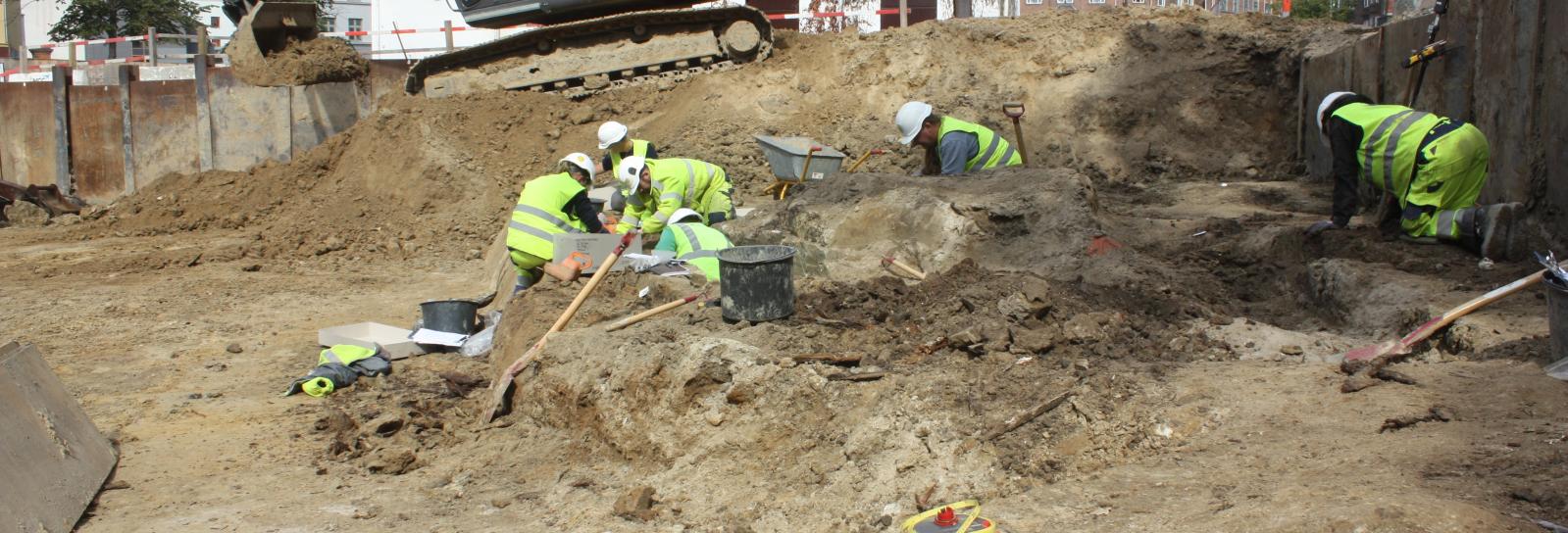Assistens Kirkegård excavations
In the graveyard’s north-eastern corner, the museum carried out an excavation from December 2009 till January 2011
Unearthing the last century
The archaeological excavations at Assistens Kirkegård are finished. They have been carried out in a section of the graveyard that was only in use for a limited period of time, from the onset of the 19th century to the end of the 20th century. Hence, these excavations, as opposed to those to be carried out at Kongens Nytorv, Gammel Strand and Rådhuspladsen, will provide us with information regarding the history of Copenhagen in modern times.
Skeletons reveal historical narratives
A large number of skeletons have already been unearthed. Having been subjected to a series of examinations, they can reveal a great deal about the prevalent health conditions in Copenhagen both at different points in history and among different social groups. The skeletons can also reveal the ways in which the hospital services have treated illnesses down through history.
Death and Mourning
The archaeological endeavours carried out at the graveyard are expected to cast forth a wealth of findings regarding the burial customs of former times, not to mention the changes they have been subject to down through history. When investigating how people have been buried in a number of different ways, we can also become familiar with how one dealt with sorrow, the deceased and the bereaved in former times. This is something that has been difficult to discern from available written sources and, as such, something that is important to document now that the opportunity to do so has arisen.
See video med field leader Sian Anthony
